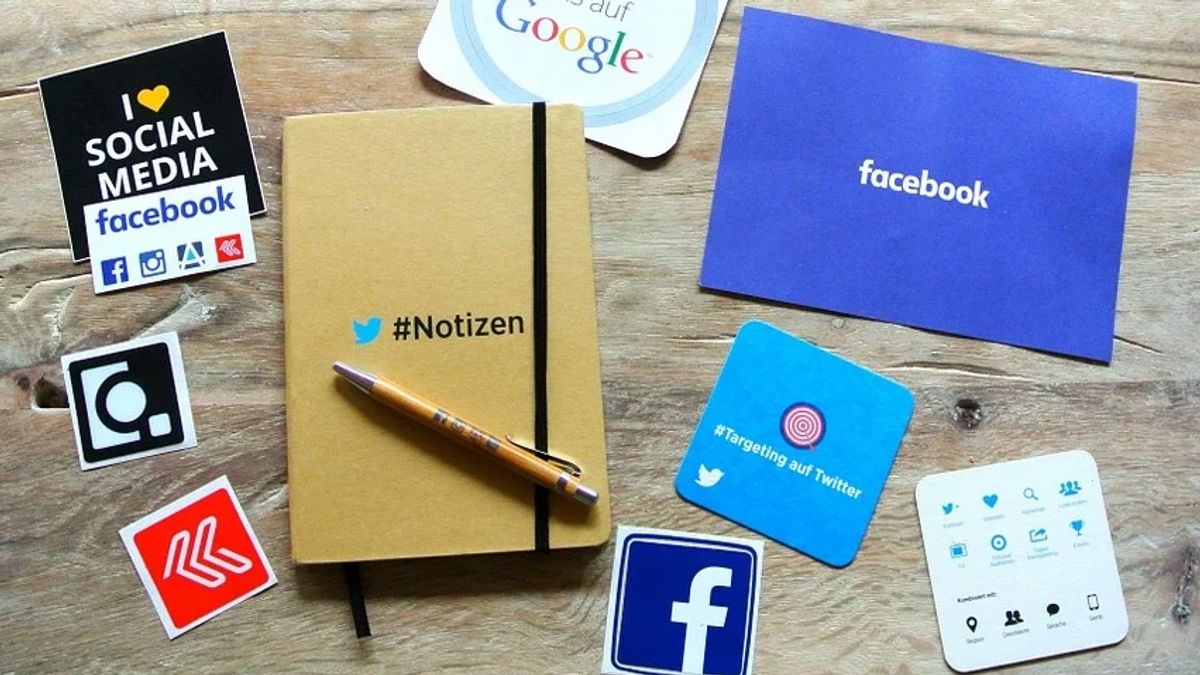JAKARTA - Russia again took firm action against a number of social media companies on Tuesday, March 1. A Russian Foreign Ministry official also accused Meta, Google and other Western tech giants of instigating the war.
Russia's communications regulator, Roskomnadzor, has also reinstated a slowdown in the loading speed of Twitter on computers. This is an “old punishment” for Twitter. The microblogging platform had previously received similar sanctions, but was lifted by Russia in May 2021.
The sanctions for Twitter were re-imposed because Roskomnadzor accused the US company of failing to remove what they described as fake posts about Russia's "special operations" in Ukraine. Twitter declined to comment on the latest sanctions they received from Russia.
Russia has previously been slowing down Twitter on mobile devices for almost a year. It is part of a wider campaign against internet control that critics say threatens individual and corporate liberties.
Apart from Twitter, Moscow has also partially restricted access to Facebook. This comes because Facebook's parent company, Meta Platforms Inc, has rejected the Russian government's request to stop independent fact-checking of some Russian state media. Many of Russia's state media have faced restrictions in Ukraine and around the world as Western countries continue to seek and stifle messages propagated by the Kremlin.
Roskomnadzor said on Tuesday that it had written to Meta demanding the immediate removal of restrictions on Russian state-backed media outlets, such as RT and Sputnik, on Facebook and Instagram.
Anna Belkina, deputy editor-in-chief of RT, said no evidence was provided of any inaccuracies in RT's reporting. He said Western establishments appeared to be afraid of alternative perspectives from their media.
"What they fail to realize is that it is their own echo chamber that is sowing the public distrust they have long regretted. They will reap what they sow," he said.
Oleg Gavrilov, deputy head of the Russian foreign ministry's information and press department, said the behavior of US tech giants, especially Google Meta and Alphabet Inc, was unacceptable.
"Hostile propaganda activity is carried out openly on their social platforms, Russian sources of information are blocked, access to domestic media is massively restricted," he was quoted as saying by the Interfax news agency.
Gavrilov said a system should be put in place to "hold foreign warmongers against Russia" to account in order to strengthen Russia's security. Responding to the accusations, Google and Meta did not want to comment.
The two companies are among a handful of foreign internet companies currently facing possible punitive action in Russia after failing to open local offices. They were also deemed to have not taken other action as required by the communications law, after the deadline for doing so expired last Monday.
Currently in Russia the speed of users to access Facebook and Twitter has been slowed since Tuesday, March 1. Even Facebook is no longer available on some devices. This fact shows Moscow's increased blocking capabilities since their failed attempt to restrict access to the messaging app Telegram in 2018.
The increased pressure on foreign technology companies has increased the chances that they could leave the Russian market. This move could happen either through expulsion by Moscow or voluntarily under pressure from Western governments.
Industry consultant John Strand said the time when global companies could focus on profits and remain passive to aggression and autocracy was long gone. He said Russia views the likes of Facebook and Google as threats to its control over communications.
"The war in Ukraine and social media is not the best cocktail right now," Strand told Reuters. "Western companies have to make a choice: do they want to do business in Russia under current and future conditions or will they stop operating there?"
The English, Chinese, Japanese, Arabic, and French versions are automatically generated by the AI. So there may still be inaccuracies in translating, please always see Indonesian as our main language. (system supported by DigitalSiber.id)













